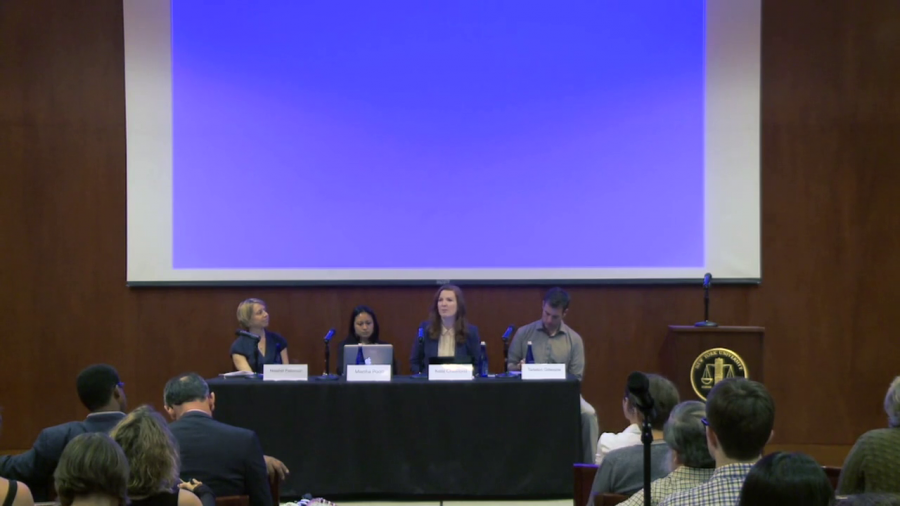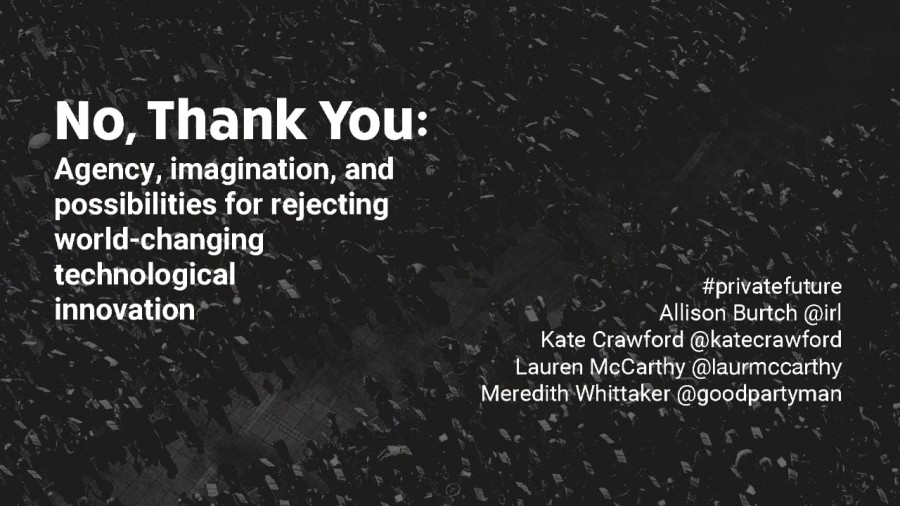The big concerns that I have about artificial intelligence are really not about the Singularity, which frankly computer scientists say is…if it’s possible at all it’s hundreds of years away. I’m actually much more interested in the effects that we are seeing of AI now.
Kate Crawford

Can an Algorithm Be Agonistic? Ten Scenes about Living in Calculated Publics
in The Relevance of Algorithms
This is why it matters whether algorithms can be agonist, given their roles in governance. When the logic of algorithms is understood as autocratic, we’re going to feel powerless and panicked because we can’t possibly intervene. If we assume that they’re deliberately democratic, we’ll assume an Internet of equal agents, rational debate, and emerging consensus positions, which probably doesn’t sound like the Internet that many of us actually recognize.

No, Thank You: Agency, Imagination, and Possibilities for Rejecting World-Changing Tech
in Art, Design, and the Future of Privacy
We’re trying to say it’s on you, it’s your responsibility, figure this out, download this, understand end-to-end encryption, when it’s a shared problem and it’s a communal problem.

